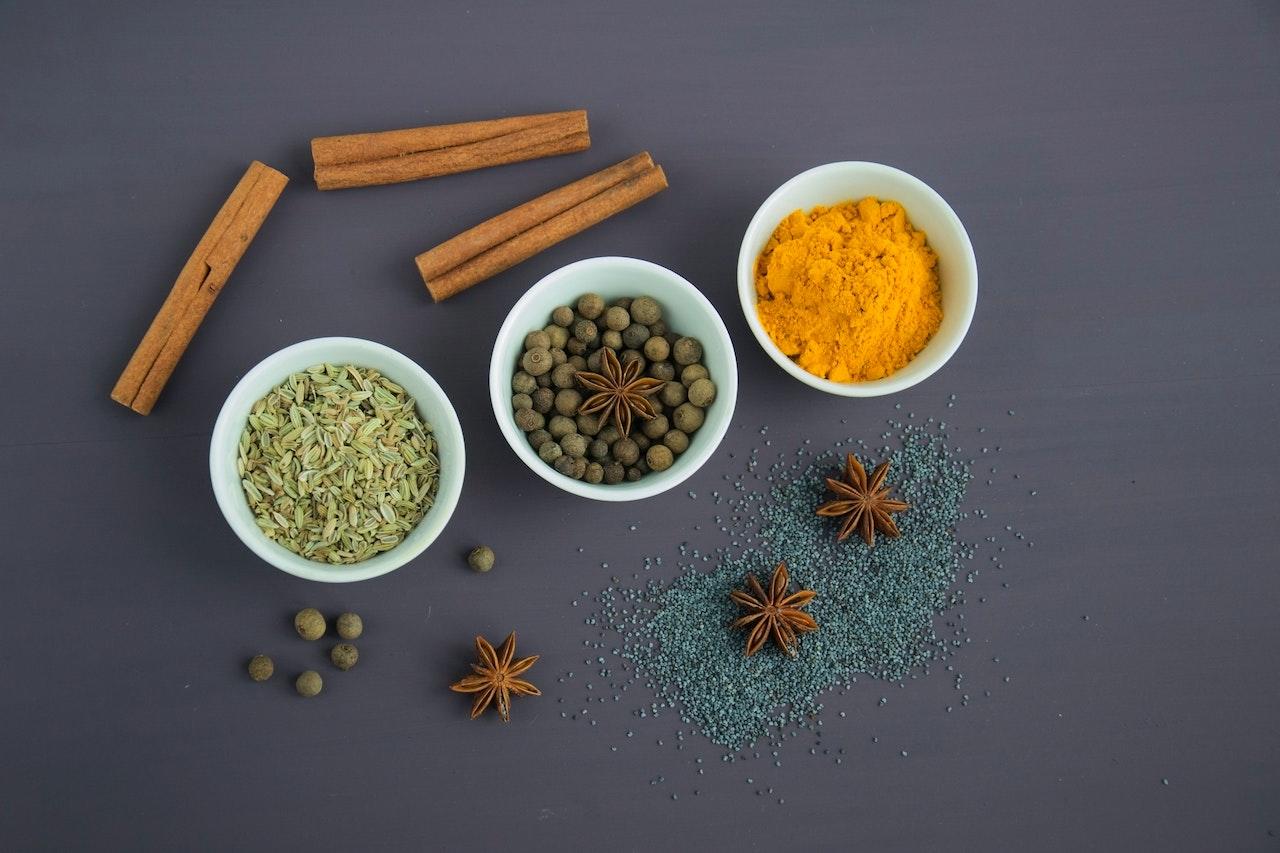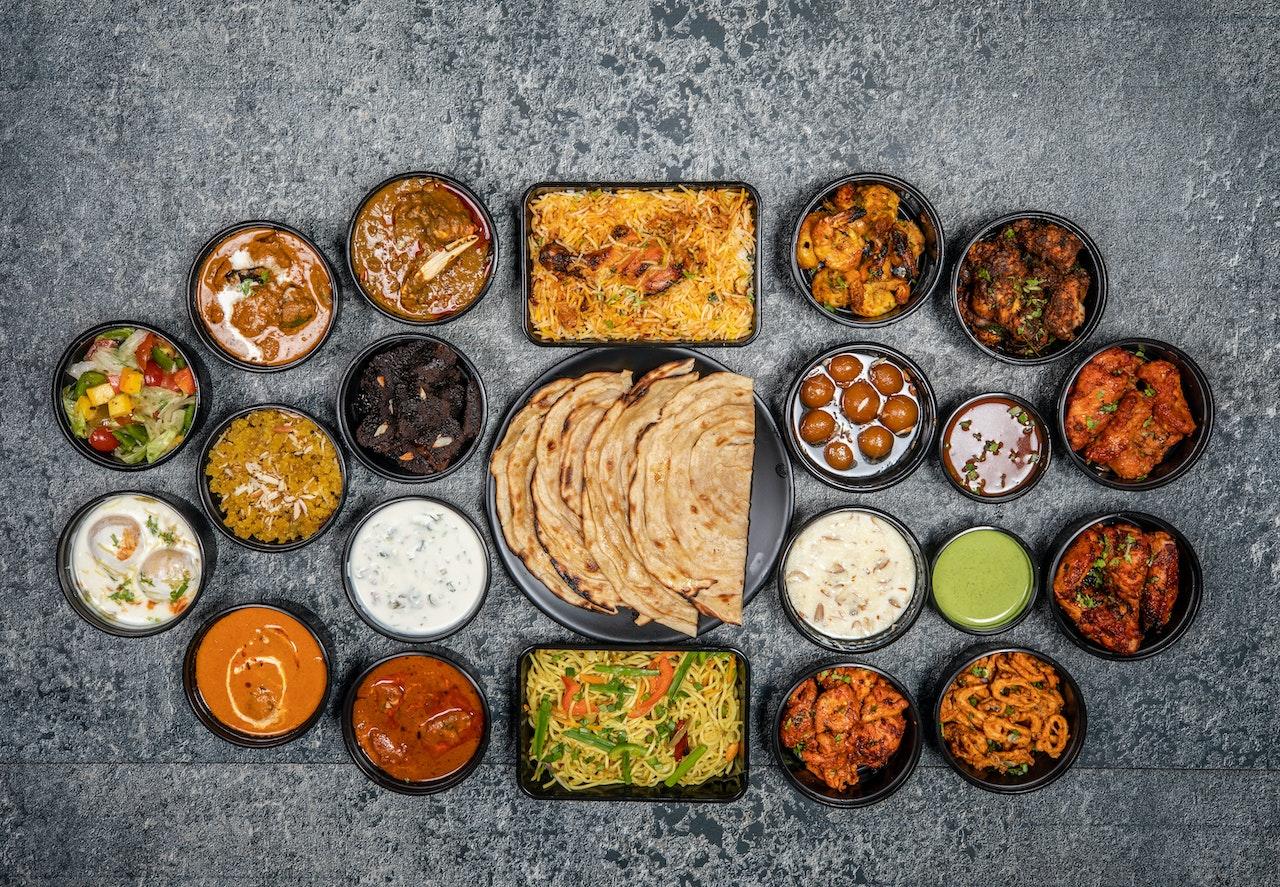While the idea of using food as medicine is a rather novel concept in the West, in India, the link between food and health has been known for thousands of years.
Both schools of thought have interesting ideas about how to best use food to stay healthy, and there is merit in both the Indian way and the Western way.
In India, the holistic, whole-body health science is known as Ayurveda.
In Western medicine, each part of the body is looked at individually, and nutrients are studied to see the effect on each different body part or system, including mental health.
Complementary and Alternative Medicine (CAM) such as homeopathy, osteopathy, chiropractic, acupuncture, and herbalism are studied and used in different places all over the world.
The intent of all systems of medicine is to understand how to keep the body as healthy as possible. Ideally, it would be possible to prevent any diseases, illnesses, defects, and other occurrences that can make someone’s life harder.
So, what do these systems of medicine advise in terms of nutrition for health and disease prevention? Let’s find out!

What Diseases Are Related to Nutrition?
Why is eating healthy important?
There are quite a few illnesses and diseases that can be directly linked with the quality of the diet a person is consuming. If you want to avoid these diseases, then eating healthy is the very best thing you can do to prevent them, especially if you have a family history of any illnesses!
These diseases are often linked to diet (from over-eating, under-eating, and eating too much processed food):
- Diabetes
- Heart disease
- Eye problems including blindness and amputation
- Feet problems including paralysis and amputation
- Certain cancers (colon, lung, prostate, uterine)
- Gall bladder disease
- Osteoporosis
- Tooth decay
- Alzheimer’s and dementia
- Stroke
- Sleep apnea
- Hypertension
- Asthma
- PCOS
- Anemia
- Hair loss
- Kwashiorkor (protein deficiency)
- Marasmus (wasting away; emaciation)
- Osteomalacia
- Scurvy
- Goiter
- Hypoglycemia
- Diverticulitis
- Repeating infections

Ayurvedic Foods for Disease Prevention
Ayurveda promotes the idea of eating intelligently based on your own unique needs.
Every body has slightly different requirements for vitamins, minerals, and nutrients. Additionally, every body will have a slightly different microbiome present in the gut, plus slightly different organs, and thus, slightly different tolerances to foods compared to other people.
Look at how different we all are in terms of hair color and texture, eye color, skin color, height, weight, length of our fingers, shape of our earlobes… the list goes on! Even though we can’t see our internal organs, it makes sense that they would have slight variations between them as well. After all, we can see the difference between our external organs (like skin, eyes, and tongue), as well as the difference in our bone structures.
With all these factors at play, Ayurveda acknowledges that an ideal diet may look a little different from person to person. Therefore, it’s necessary for the person to pay close attention to how they feel and make adjustments accordingly.
To learn more about Ayurvedic or modern nutrition, you can take classes with a dietitian or nutritionist.
Healthy Ayurvedic Foods
Since each person’s bodily disposition (dosha) is different, the foods they need to encourage health are different.
Since this is not an article about Ayurveda, we won’t go into specifics about doshas. Instead, we will just take a look at the best-recommended foods and spices in Ayurveda in general.
Depending on your dosha, you are recommended to eat:
- Sweet fruits like bananas, mangoes, dates, figs, and grapes
- Starchy vegetables like sweet potatoes, squash, beets, and carrots
- Grains like rice, oats, and barley
- Wheat products like bread and pasta
- Certain dairy like ghee, milk, cheese, curd, and kefir
- Sweets like honey, maple syrup, date syrup, and jaggery
- Citrus fruits like lemons, limes, oranges, and grapefruit
- Apple cider vinegar
- Seaweed
- Tamari, soysauce, and miso
- Celery
- Onion
- Garlic
- Chiles
- Radishes
- Mustard
- Black pepper, chili powder, cayenne
- Ginger
- Leafy greens like kale, collard greens, dandelion greens, spinach, and brussels sprouts
- Zucchini
- Eggplant
- Bitter herbs like turmeric, fenugreek, dill, and neem
- Coffee and cacao
- Legumes like channa and dal
- Raw broccoli, gobi, asparagus, and brussels sprouts
- Artichokes and turnips
- Green beans
- Pomegranates and cranberries
- Unripe bananas
Supportive Ayurvedic Herbs
Herbs are just as important as food itself in Ayurveda. Scientific studies in western medicine are beginning to confirm much of ayurvedic wisdom, including the powerful effects of certain herbs and “superfoods” in the body. There really are many benefits of Indian spices in your diet!
These supporting foods include:
- Ashwaghanda
- Alma
- Triphala
- Olibanum (Frankincense)
- Brahmi
- Cumin
- Turmeric
- Licorice root
- Gotu Kola
- Bitter Melon
- Cardamon
- Fennel seeds

Staying Healthy with Modern Foods
Of course, all of the Ayurvedic foods mentioned are available today. But, not all of the food available today is really talked about in Ayurveda, since a lot of it didn’t exist when Ayurveda was first formed!
We are also unlikely to stick to a strict whole-food Ayurvedic diet. So, we need to know which foods are healthy according to modern standards.
Current studies show that these foods are definitely healthy and help to protect the body from disease.
The keys to preventing disease through nutrition are:
- Ensure you have enough of each vitamin, mineral, and nutrient
- Eat enough fiber
- Avoid getting too much of vitamins, minerals, and nutrients that are detrimental in large doses
- Avoid too much of substances that harm health
- Adjust your intake of foods based on your individual needs
Many people fall ill because they don’t maintain these keys, and are left having to try to reverse an illness or just try to keep it from getting any worse. It’s easy to take your health for granted until it fails. So, even though you might not feel like making the healthy choice, doing so can help prevent a future where you don’t have a choice anymore.
Understand your body's unique nutritional needs by consulting with a nutritionist.
Best Foods for Health
There are many amazing disease-fighting foods that you can add to your diet to help improve your health! Some of the best include garlic, ginger, turmeric, and cruciferous vegetables like broccoli and Brussels sprouts. These foods are packed with antioxidants and other nutrients that can help protect your body from disease.
Garlic is a natural antibiotic and antiviral agent that can help protect you from many common infections. Besides, ginger is beneficial for digestion and has anti-inflammatory properties that can help relieve pain and inflammation in the body.
Additionally, adding healthy fats like omega-3s and monounsaturated fats to your diet can also be beneficial for fighting disease. Sources of omega-3s include salmon, walnuts, chia seeds, and ground flaxseeds.
Monounsaturated fats are present in olive oil, avocados, almonds, and pistachios. These are the best vitamins and nutrients for healthy skin and making it glow from within. By including these healthy foods in your diet, you can live an active disease-free life.
Also, include turmeric and cinnamon in your diet. Turmeric is an antioxidant that helps fight free radicals, which can cause damage to cells and lead to disease. And cinnamon is helpful for regulating blood sugar levels and has antimicrobial properties that help kill harmful bacteria.
So adding these foods to your diet can help keep your body healthy and protected from several ailments.
Healthy food doesn't always have to be bad in taste. You may add blueberries and goji berries for their antioxidant benefits. Another great source of antioxidants is grapefruits and guavas. Grapefruit halves are high in antioxidants and low in sugar, perfect for breakfast! Start your morning with a grapefruit half to help you eat less throughout the day. Besides, this is the best nutrition for healthy eyes.
Also, try watermelon as it contains lycopene, which has been shown to reduce prostate cancer risk. These fats also produce collagen fibre, which reduces skin wrinkling and sagging skin. Drinking watermelon juice can provide you with more than 700% of your daily dose of vitamin C and carotenoids per cup.
You may also try heart-healthy recipes to have interesting options for meals every day. All these food items prove the importance and benefits of healthy eating in preventing many diseases.
Learn how to stay healthy with a dietitian in Mumbai or wherever you are with Superprof.

Easy Guide for Disease Prevention Through Healthy Lifestyle
It's not difficult to understand how disease prevention through a healthy lifestyle works. All you need to do is make small but impactful changes in your daily habits. There is no one-size-fits-all answer to this question, as the best way to prevent disease depends on your lifestyle and daily habits. However, there are common tips that can help you stay healthy and reduce your risk of disease:
- Eat a healthy diet full of fresh fruits, vegetables, and grains
- Exercise regularly
- Avoid smoking and excessive alcohol consumption
- Stay hydrated by drinking plenty of water throughout the day
If you can stick to a healthy routine and make good choices most of the time, you'll be doing your body a world of good. Disease prevention is all about making small changes that add up in the long run!
Food Items To Avoid
It may not be possible for you to eliminate certain foods, but you should limit your intake of these items that can be harmful to your health in excess.
- Excess sugar and carbs, including sodas and processed foods
- Artificial preservatives and colors
- Red meat and dairy, especially full-fat versions
- Processed oils like corn oil or vegetable oils
- Ultra-processed white bread
Keeping all this information in mind might seem a bit overwhelming at first, but the most important takeaway is simply to make small healthy choices every day. They all add up to a healthy lifestyle!
Choose less-processed food the majority of the time, make sure to move around each day, stay hydrated, and take care of your mental health. With these small but powerful actions, you can help prevent many diseases from popping up in your body.
Summarise with AI:
















